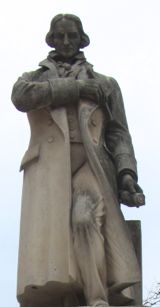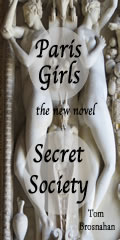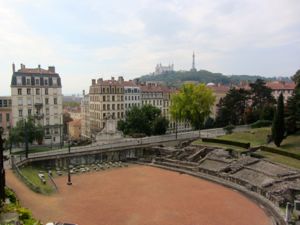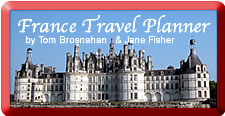 |
Croix-Rousse, Lyon, France | |
| Traditionally the home of silk weavers, this historic hill provides beautiful views of Lyon. | ||
|
|
|
The Croix-Rousse (Red Cross) district of Lyon is the hill in the northern part of the Presqu'île, or center of Lyon (map). Its name comes from a 16th century cross that was reddish brown in color. It is interesting to take the funicular to the top and then walk down to the center. If you want to learn about silk—from the silk worm to the revolts of the silk workers to the invention of the Jacquard loom—visit the Silk Workers' House, or Maison des Canuts. (Canuts is the local word for silk workers. If you see cervelle de canut on a menu, though it literally translates as "silk worker's brains," it's actually a seasoned cheese, so don't be afraid to try it!) The silk industry has a long history in Lyon, having been introduced by King François Ier in 1536. You can also visit family-owned silk workshops on Croix-Rousse. Many of the silk workers lived and worked in the same location, and the architecture reflects this, with high windows to admit light into the workshops.
The Croix-Rousse is divided into two areas: the plateau, or flat top part; and les pentes, or slopes. At the center of the plateau, as you exit the funicular, you'll see a statue of Joseph Marie Jacquard, who invented the Jacquard Loom in 1801. This innovation, which made use of paper cards to indicate patterns (think early computers with punch cards, or player pianos) allowed weavers to create intricate designs and patterns. Walk to the terrace overlooking the city and you'll enjoy a lovely view of Lyon. You can then walk down the pentes, enjoying the colorful buildings, narrow streets, and changing views of Lyon. Be prepared and wear comfortable shoes! There are lots of steps. Be sure to turn right at the Rue des Tables Claudiennes for a glimpse of the Roman Amphitheater. And the actual Claudien Tablet can be seen in the Musée Gallo-Romain, on Fourvière Hill. After walking down the pentes, you'll be near the lovely Hôtel de Ville, with its Bartholdi Fountain; and the Musée des Beaux Arts (Fine Arts Museum) just across the street.
|
|
Above, Roman Amphitheater on the Croix-Rousse Hill, with Fourvière in the background.
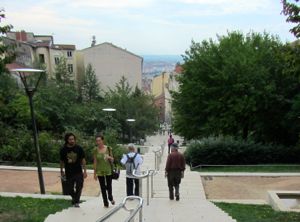
|
